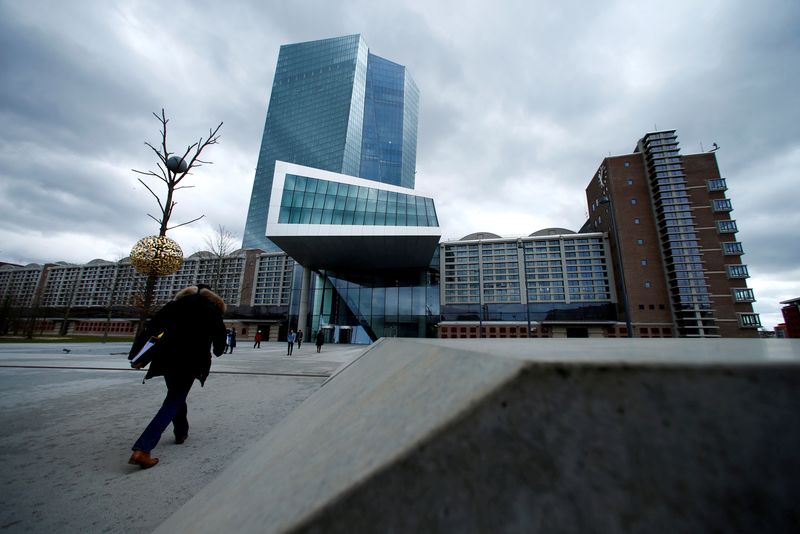By Yoruk Bahceli and Stefano Rebaudo
(Reuters) - Another quarter percentage-point rate hike from the European Central Bank looks like a done deal on Thursday, but the key question for markets is how many more will follow.
Euro area inflation fell faster than expected in May and the bloc's economy is in recession, boosting the case for the fastest hiking cycle in the ECB's 25-year history to end soon.
"Everything is finally going in the right direction for the ECB," said Pictet Wealth Management's head of macroeconomic research Frederik Ducrozet.
Here are five key questions for markets.
1/ So, just a small hike from the ECB?
Yes, the ECB looks all but certain to stick to a smaller hike having ditched aggressive moves in May. The focus is on what clues ECB chief Christine Lagarde gives about the policy outlook.
She's expected to reinforce the message that rates will have to rise to levels sufficient to contain inflation, but also needs to be careful to keep the ECB's options open without sounding too dovish.
"The main issue for the ECB is not to get backed into a pause corner by the markets the way the Fed was," said Mike Kelly, head of multi-asset at PineBridge Investments, referring to the U.S. central bank.
2/ The ECB must be happy with slowing inflation?
Markets cheered euro area inflation falling more than expected in May. Crucially, the ECB will be glad to at last see a slowdown in core inflation, which strips out volatile energy, food, alcohol and tobacco prices.
Still, at 5.3% it's only just off a record high. Wage growth is at twice the rate consistent with the ECB's inflation target.
"The ECB reiterated that they look at core inflation and whether it starts showing a downward trend. From that point of view, the last data was very encouraging," said HSBC (LON:HSBA) rate strategist Chris Attfield.
"The ECB will react to those numbers by saying that monetary policy is working, their messaging is working, and they must stay the course."
3/ Will the ECB pause soon?
Markets hope so, betting ECB hikes will be done after another 25 bps hike by September. That will most likely come in July given several policymakers have practically pre-committed to a move then.
Inflation, though still high, is slowing. Demand for loans is falling and lending standards are tightening at a historical pace.
Flavio Carpenzano, investment director at Capital Group, said a weakening economy in Europe would limit scope to raise rates much further.
Still, hawks such as Germany's Joachim Nagel are keeping hikes beyond the summer on the table.
4/ What will new ECB staff projections show?
Powerhouse economy Germany dragged the bloc into a recession in the first quarter that many expected it had dodged, and the outlook is weakening, so growth forecasts could be revised down.
A key question is whether the ECB lowers its 2.1% inflation forecast for 2025, putting it at its 2% target.
In normal times, before it focused more heavily on current inflation, such a revision would have allowed the ECB to pause.
"If that comes out at 2%, I think markets will treat this as a risk that the ECB has then delivered its final hike (on Thursday)," said Danske Bank chief analyst Piet Christiansen.
5/ Will the ECB be able to keep hiking if the Fed stops?
Markets expect the Federal Reserve will keep rates unchanged in June before delivering a final rate hike in July.
A Fed pause would normally be a headache for the ECB, but it's less of an issue this cycle as the ECB started later and should be done soon.

A rally in the euro that dampens activity would even be welcome by the ECB given high inflation, Pictet's Ducrozet said.
Another issue is the rate cuts traders are pricing in next year, prompting pushback from rate setters. But if the Fed cuts rates because of a recession, the ECB may have to reconsider when the bloc's economy feels the sting.